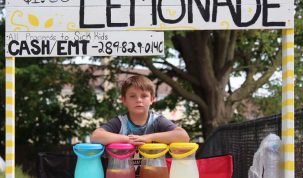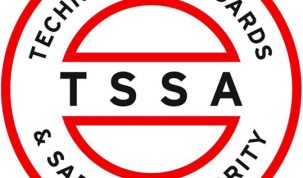New funding model for operators, coupled with fee reduction, bringing more stability and affordability to the sector
Ontario is taking the next step in lowering child care fees for families as part of the Canada-wide Early Learning and Child Care (CWELCC) system. Starting in January 2025, parent fees will be capped at $22 per day for children under the age of six in CWELCC programs, resulting in additional savings of nearly $300 million in 2025 for families.
“Our government is determined to make life more affordable for families, that’s why we’re putting more money in their pockets by cutting child care fees even further,” said Todd Smith, Minister of Education. “When kids are in child care, they’re able to learn and grow, and their parents are able to enter the workforce with peace of mind.”
Since signing an agreement with the federal government in 2022 for their signature national program, Ontario has already reduced child care fees by an average of 50 per cent from 2020 levels, introduced its Child Care Workforce Strategy and launched a plan to create thousands of new licensed child care spaces in communities across the province.
Ontario continues to call on the federal government to increase funding to this national program so it is sustainable for families throughout the province. This advocacy reflects Ontario’s unique agreement with the federal government which included a mid-agreement program review. Ontario’s new $22 per day fee cap for children under the age of six in programs enrolled in the CWELCC system will reduce fees for 44 per cent of these spaces. That means families facing the highest fees — often those with the youngest children living in less affordable communities — will see the largest fee reductions. This change will result in additional savings of nearly $300 million in 2025 for these families.
Based on extensive consultations with partners in child care delivery, including all types of child care operators as well as service system managers and school boards, the Ontario government is also introducing a new, cost-based funding approach for operators in the CWELCC program. The new funding approach, which will also be effective January 2025, prioritizes a simple and easy-to-administer system, which is consistent across the province and funds operators based on the true costs of operating child care.
“I’m so pleased to be bringing forward this new funding formula that has been designed based on the extensive input of operators,” said Minister Smith. “This new formula will provide the stability and predictability operators need to continue to expand and create more affordable child care spaces for Ontario families.”
Ontario will continue to work with the federal government, municipalities, and operators to build a sustainable early years and child care system that meets the needs of children, families, and professionals in all communities across the province.
Quick Facts
- In March 2022, Ontario secured a six-year $13.2-billion commitment from the federal government, which will lower fees for eligible children to an average of $10-a-day by March 2026. This funding builds on the estimated $21.6 billion the province is investing in full-day kindergarten and the estimated $11.8 billion the province is investing in early years and child care over the same period for an estimated total provincial investment of $33.4 billion.
- In December 2022, as part of the CWELCC agreement, Ontario announced a targeted plan to create thousands of new licensed child care spaces, with a focus on increasing access for Ontario families.
- In November 2023, Ontario launched a Child Care Workforce Strategy (CCWS) to support the retention and recruitment of registered early childhood educators (RECEs) working in licensed child care programs enrolled in the CWELCC system. Through the CCWS, Ontario is increasing wages for RECEs employed by child care programs enrolled in CWELCC, improving working conditions, supporting career laddering and entry to the profession, and building the profile of the profession.
- Ontario increased the amount of Start-up Grant funding per licensed child care space by allocating an additional $75 million to the program in 2024, for a total of about $161 million this year. Another $151 million in funding has been earmarked for 2025. This will amount to a total of $366.5 million in investments for Start-up Grants for 2023-2025.
- On July 5, 2024, the Minister of Education and the Association of Municipalities of Ontario (AMO) sent a joint letter to the federal government asking to remove the cap on for-profit child care to enable the creation of more spaces. The CWELCC agreement requires the province to have a maximum of 30 per cent of CWELCC spaces operated by for-profit operators.
- As of March 2023, there were more than 5,770 licensed child care centres, 148 licensed home child care agencies, and around 505,000 licensed spaces in Ontario.
























